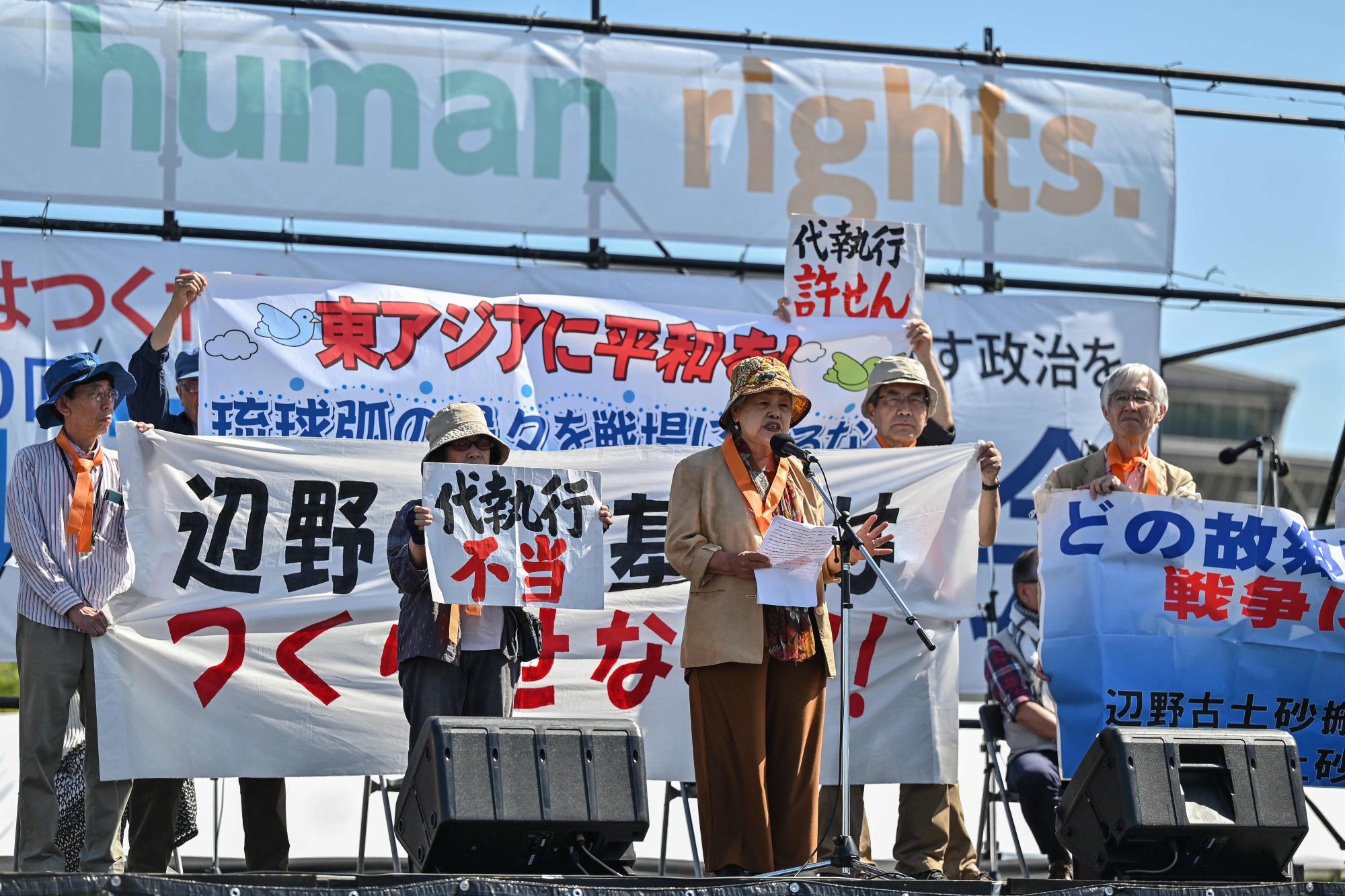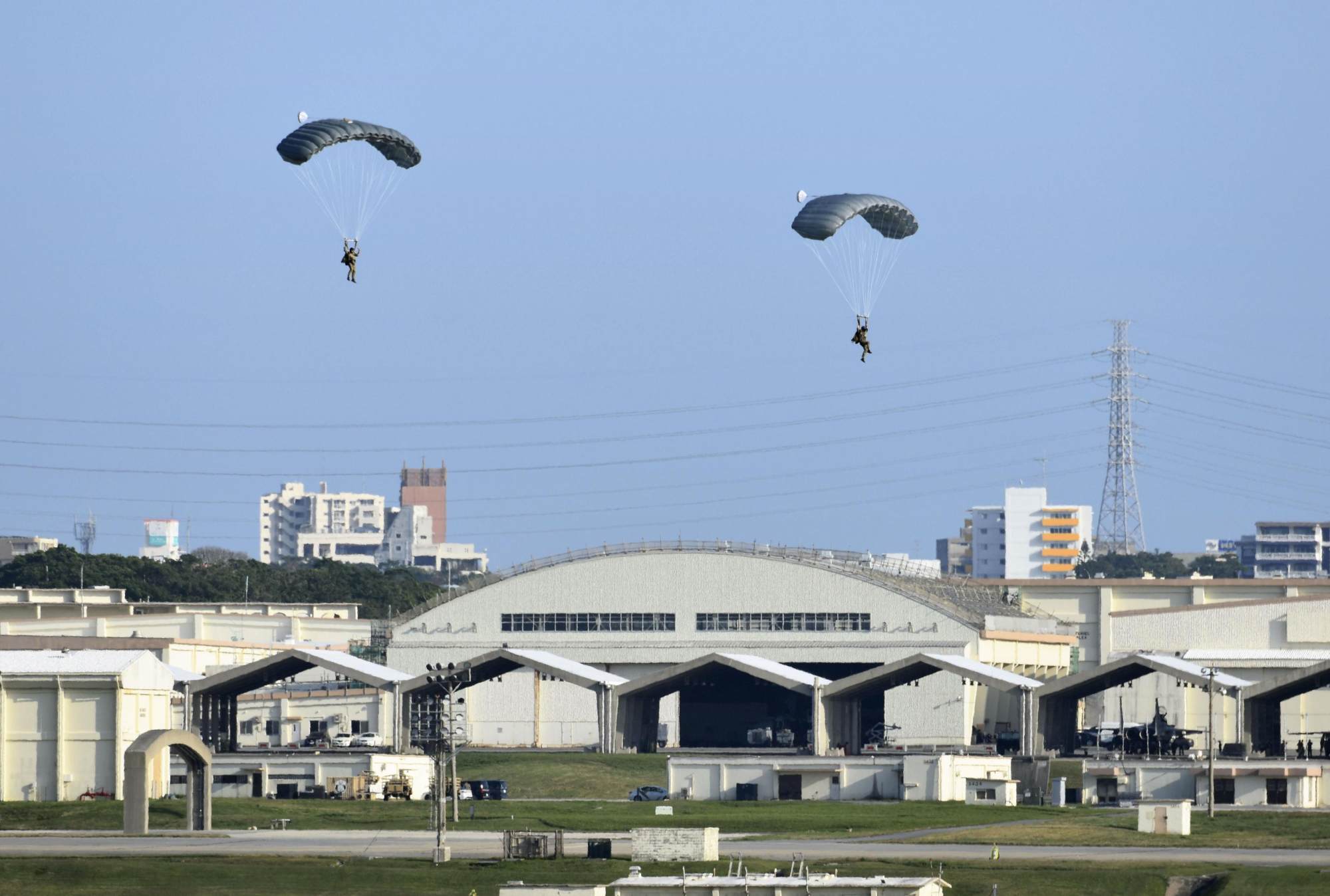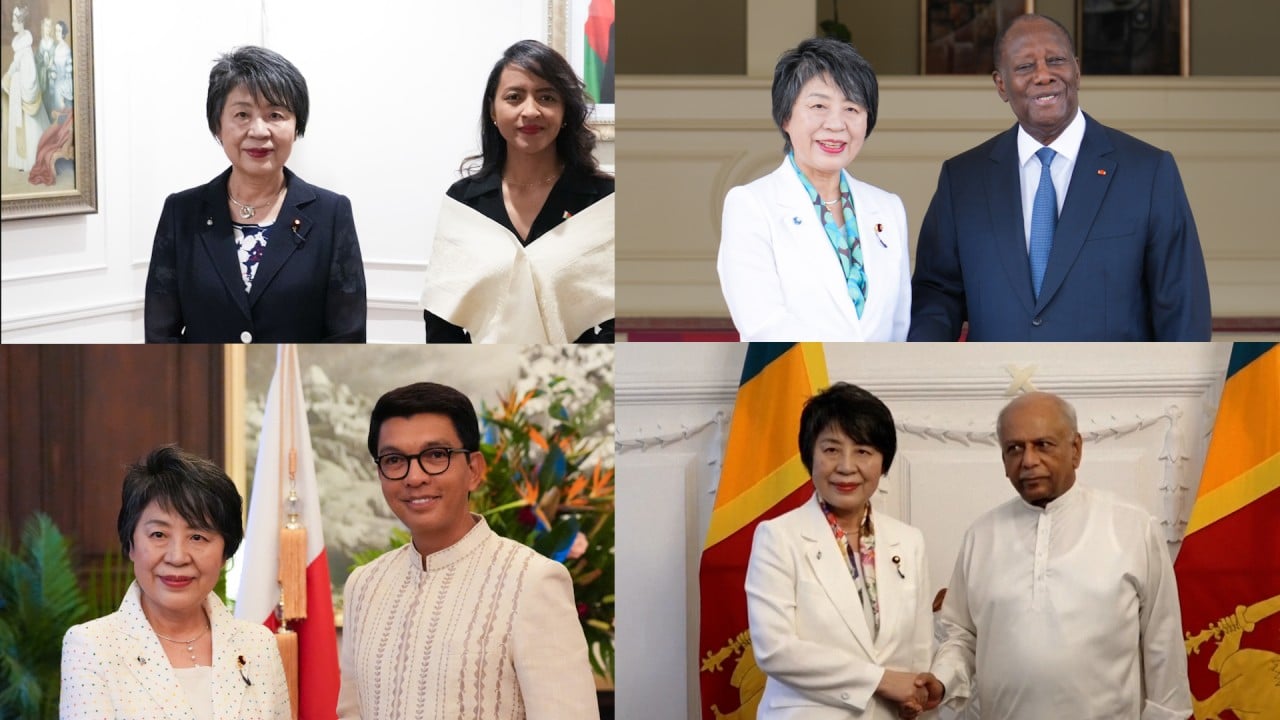“I saw that people were upset about the environmental damage that was being done, but they didn’t seem to have any power to stop it.

“I even get the impression that Japan remains a satellite country that dutifully does the US’ bidding,” he added.
Stone cited a survey showing as many as 70 per cent of Okinawans were opposed to the Henoko base but said they and the local government had been overruled by Tokyo, which was a “slap in the face of the democratic movement”.
“Your Japanese leaders are gutless,” he added. “They’ve always been gutless. They haven’t fought for real sovereignty, for that matter.”
Hiromi Murakami, a political-science professor at the Tokyo campus of Temple University, told This Week in Asia, “The debate over US forces on Okinawa has gone on since the end of the war and yes, having a famous director sign the petition and then speak about the issue is going to attract attention, but it is not going to change anything.”
“The other reason why the bases will largely remain in Okinawa is because they have been there since the end of the war in 1945, so moving them anywhere else in Japan would be very expensive and, perhaps most importantly, no other prefecture in Japan wants to host those bases,” Murakami said.
She pointed out that hundreds of thousands of Okinawans took to the streets in 1995 after three US servicemen abducted, raped and then left a 12-year-old girl for dead, but even that horrific incident was not enough for the government to order the US military out of the prefecture. In comparison, she said, a petition was unlikely to make any impact on government policy.
“The reality is that the bases are stuck there, no matter the petitions that are sent to the government,” she added.
Ben Ascione, an assistant professor of international relations at Tokyo’s Waseda University, agrees that Okinawa is “strategically convenient” for both the US and Japan as they look to counter threats in the region.
“Okinawa is strategically located near a number of potential regional flashpoints, including Taiwan, the disputed Senkaku Islands in the East China Sea and it is not far from the Korean Peninsula,” said Ascione, using the Japanese name for islands that Beijing claims and refers to as the Diaoyu archipelago.
“It is strategically convenient for the US to have facilities there as it is closer than Guam or any of the other US bases in the Pacific,” he said. “The debate over the burden the bases place on the prefecture has gone on for many years, but the question for the US and Japan is how effective their forces would be if the bases were not there.”
‘It is scary for people’
“I also supported the petition and I believe it is a good initiative as it shows that it is not only the people of Okinawa who are opposed to the bases, but people from around the world who support this campaign,” she said. “It shows that this is not just a political or security issue; it is also a human rights matter.”

“I do not believe local people’s attitudes are changing,” Oka argued. “The reality is that more land is being grabbed, and that is scary for people who live alongside these new bases.
“People say it is too dangerous and that we need to learn the lessons of World War II because we face the same danger now,” she said. “There were bases here then, but that did not stop the invasion, and one-third of the civilians here were killed in the fighting.
“The media are trying to persuade us that we need to be better prepared, but more bases are not the solution because they will be the first places to be attacked if [mainland] China invades Taiwan,” she said.
“I do not know if Oliver Stone’s support will have any effect,” she admitted. “But it cannot hurt if more people know about the situation here. If we can continue to raise the profile of the problems we face, then I still have hope.”


